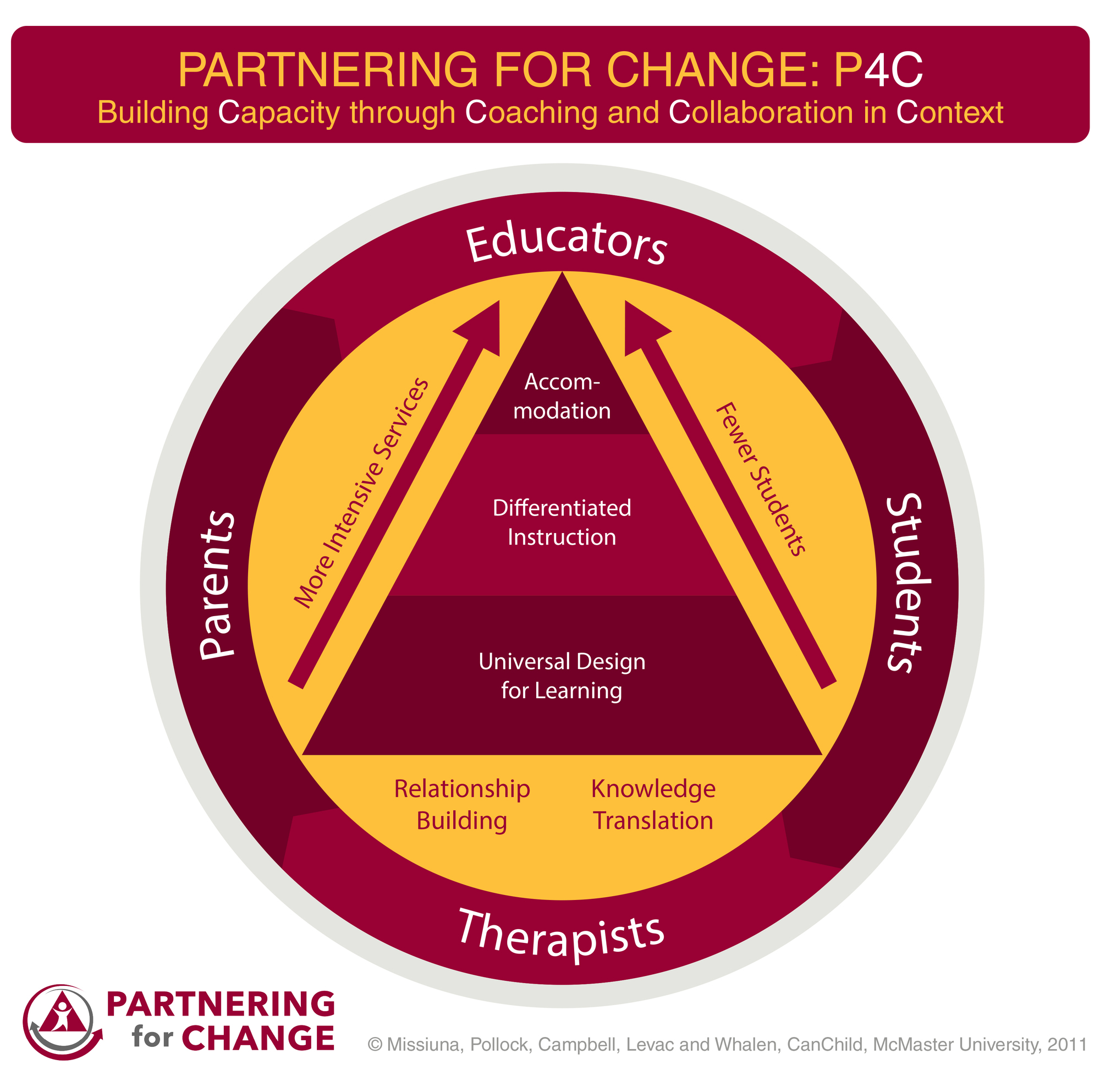Other Intervention Principles
PTs should incorporate additional intervention principles based on recent evidence when planning interventions
Start with a general/population-based approach and move to a specific/individual-based approach if needed
More information about population-based approach. Partnering for Change (below) is an example of school-based service delivery model using a population-based approach.

The Partnering for Change Model
Not every child with DCD needs one-on-one, specialized interventions. One-on-one, pull-out, direct interventions are the traditional way of working with children with DCD, but this approach is costly, leads to long waiting times, and does not always give best results. Beginning with a more general, population-based approach and moving to an individual-based approach may be more effective and efficient.
Adapt the task and change the environment.
M.A.T.C.H
M Modify the Task
A Alter Your Expectations
T Teach Strategies
C Change the Environment
H Help by Understanding
M Modify the Task
A Alter Your Expectations
T Teach Strategies
C Change the Environment
H Help by Understanding
Foster health promotion
To avoid negative secondary consequences of DCD, Therapists are encouraged to include general health promotion counseling and activities in their interventions. Encouraging participation in physical activities and fostering positive interactions with peers are two of the many strategies that can be used.
Foster resilience
Resilience is the ability to adjust and adapt positively to different challenges. Therapists can help prevent mental health issues, which may arise from low self-esteem, social exclusion, and bullying, by fostering resilience through participation. For children with DCD, resilience comes from achieving success, increasing self-esteem, and being comfortable learning and performing activities in a different way.
Educate people in the child's environment
Those in the school, home and community environments can make a great difference in the lives of children with DCD. To do so they must understand the nature of DCD, and how to adapt their interactions with the child. Therapists have a role in educating adults by responding to their needs and supporting them, so they can in turn support children with DCD. In the following section, you will find many resources to share with them.
M.A.T.C.H
Adapting tasks and changing the environment can prevent children with DCD from developing activity limitations and participation restrictions. The M.A.T.C.H framework can help children with DCD learn a new task or activity. Each letter represents a different way to MATCH the activity to the child.
Question for Reflection
How could you "M.A.T.C.H." the activities during physical education classes for a child?
Click here for some thoughts on this questionHow could you "M.A.T.C.H." the activities during physical education classes for a child?
- M Modify the Task: Use bigger and softer balls; give more time for the child to perform the activity.
- A Alter Your Expectations: Therapists can altering their expectations about how "high" they set their expectations of what they woudl like childrien to achieve and how they woud like to see them achieve it (e.g. accept children complete an activity but not do it perfectly). Targeting participation rather than impairment is also a way of altering their expectations.
- T Teach Strategies: Meet with educators to teach strategies, building on evidence-based practice, helping them to provide instructions to the whole classroom, and specific demonstrations for the child as needed.
- C Change the Environment: Put visual cues on the wall illustrating different steps/components of the activities to be performed.
- H Help by Understanding: Familiarize yourself with the different strategies provided in this online module!

